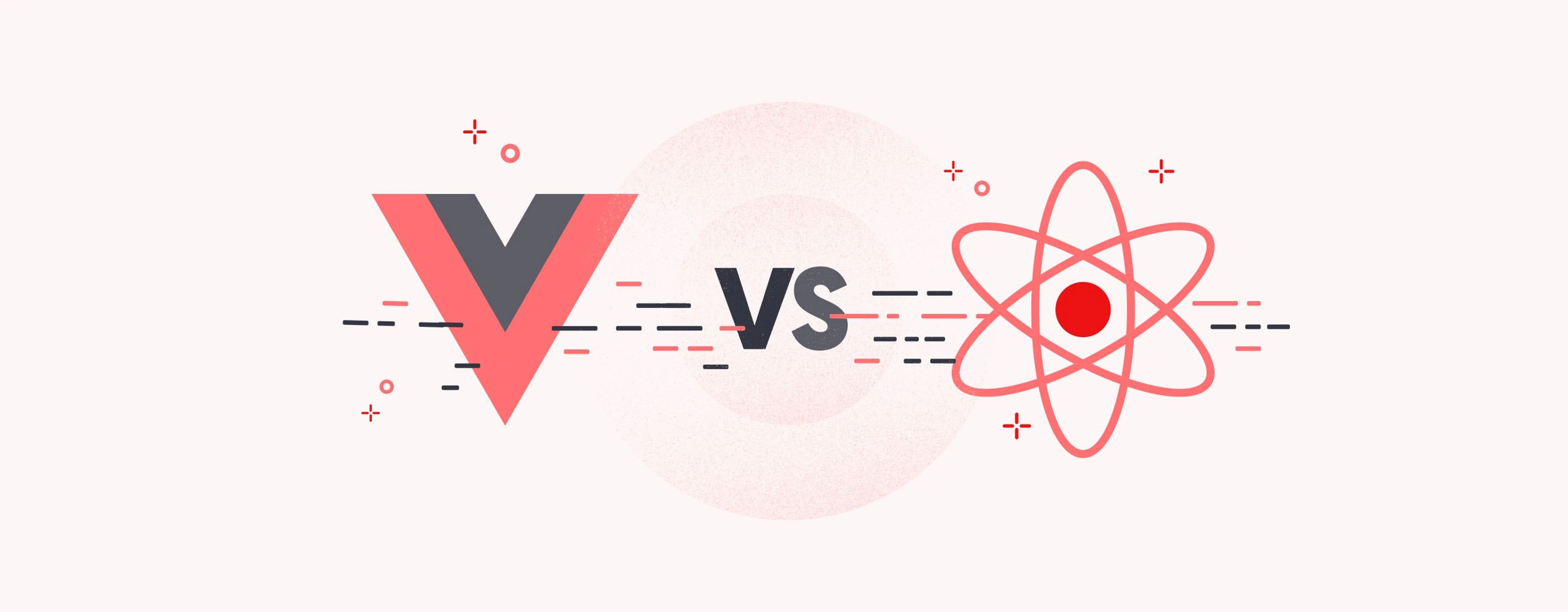React vs. Vue: The Developer's Showdown
 Samuel Onwuka
Samuel Onwuka
In the ever-evolving landscape of web development, two front-end JavaScript frameworks stand out for their popularity and efficiency: React and Vue.js. Each brings unique strengths to the table, catering to different types of projects and developer preferences. This blog delves into the perks of each framework, exploring where they thrive and how to choose the right one for your next project.
React: The Powerhouse of Component-Based Development
Overview
React, developed by Facebook, has become a go-to library for building user interfaces. Its component-based architecture allows developers to create reusable UI components, making the development process more efficient and maintainable.
Perks of Using React
Strong Community Support:
- With a vast community and extensive documentation, React offers numerous resources, tutorials, and third-party libraries, making it easier for developers to find help and share knowledge.
Performance Optimization:
- React uses a virtual DOM to optimize rendering. This means that updates to the user interface are efficient, as only the components that change are re-rendered. This leads to faster performance, especially in complex applications.
Rich Ecosystem:
- The React ecosystem includes powerful tools like React Router for routing and Redux for state management. These tools enhance the development experience, making it easier to manage application state and handle navigation.
Flexibility:
- React is often referred to as a library rather than a framework because it provides flexibility in how developers can structure their applications. This allows for integration with other libraries or frameworks, accommodating various project needs.
Where React Thrives
Large-Scale Applications: React's component-based architecture is ideal for building large applications where reusability and maintainability are crucial.
Single Page Applications (SPAs): React's performance optimization and efficient rendering make it perfect for SPAs that require dynamic content updates without refreshing the page.
Vue.js: The Progressive Framework
Overview
Vue.js, created by Evan You, is a progressive framework that emphasizes simplicity and flexibility. It’s designed to be incrementally adoptable, meaning you can integrate it into projects without rewriting existing code.
Perks of Using Vue
Ease of Learning:
- Vue’s syntax is straightforward and beginner-friendly, making it an excellent choice for developers new to front-end frameworks. The documentation is clear and concise, facilitating a smooth learning curve.
Reactivity System:
- Vue's reactivity system automatically updates the DOM when the data changes, allowing for seamless UI updates. This reduces boilerplate code and simplifies state management.
Single File Components:
- Vue promotes the use of single-file components, which encapsulate HTML, CSS, and JavaScript in one file. This structure enhances maintainability and makes it easier to manage styles and templates.
Versatility:
- Vue can be used for a wide range of applications, from simple interactive components to full-fledged single-page applications. Its flexibility allows developers to adopt it progressively, making it easy to integrate into existing projects.
Where Vue Thrives
Smaller to Medium-Sized Applications: Vue’s simplicity and ease of integration make it an ideal choice for small to medium-sized applications that require rapid development.
Rapid Prototyping: The framework’s straightforward setup and component structure allow developers to quickly build prototypes and iterate on designs, making it perfect for startups and MVPs.
Choosing the Right Framework
When deciding between React and Vue, consider the following factors:
Project Size and Complexity: For larger applications with complex state management, React may be the better choice. For smaller projects or rapid prototyping, Vue shines with its simplicity.
Team Experience: If your team has experience with one framework over the other, it might be more efficient to leverage that knowledge to reduce the learning curve.
Long-Term Maintenance: Consider how the framework will affect the long-term maintainability of your application. React’s ecosystem offers robust tools for scaling, while Vue’s simplicity allows for straightforward updates.
Conclusion
Both React and Vue.js have unique strengths that cater to different project needs. React is a powerful choice for large-scale applications, while Vue excels in ease of use and rapid development. Ultimately, the best framework for your project will depend on your specific requirements and the expertise of your development team. By understanding the perks and areas of each, you can make an informed decision that sets your project up for success.
Final Thoughts
As web development continues to evolve, staying informed about the strengths of different frameworks is crucial. Whether you choose React or Vue, embracing the right tools will empower you to create dynamic, efficient, and user-friendly applications. Happy coding!
Subscribe to my newsletter
Read articles from Samuel Onwuka directly inside your inbox. Subscribe to the newsletter, and don't miss out.
Written by

Samuel Onwuka
Samuel Onwuka
I am Samuel Onwuka, a passionate and experienced Full-Stack Web Developer with expertise in modern JavaScript and Python technologies for front-end and back-end development. This proficiency allows me to seamlessly navigate both sides of the development process, ensuring a cohesive and efficient creation of feature-rich web applications.